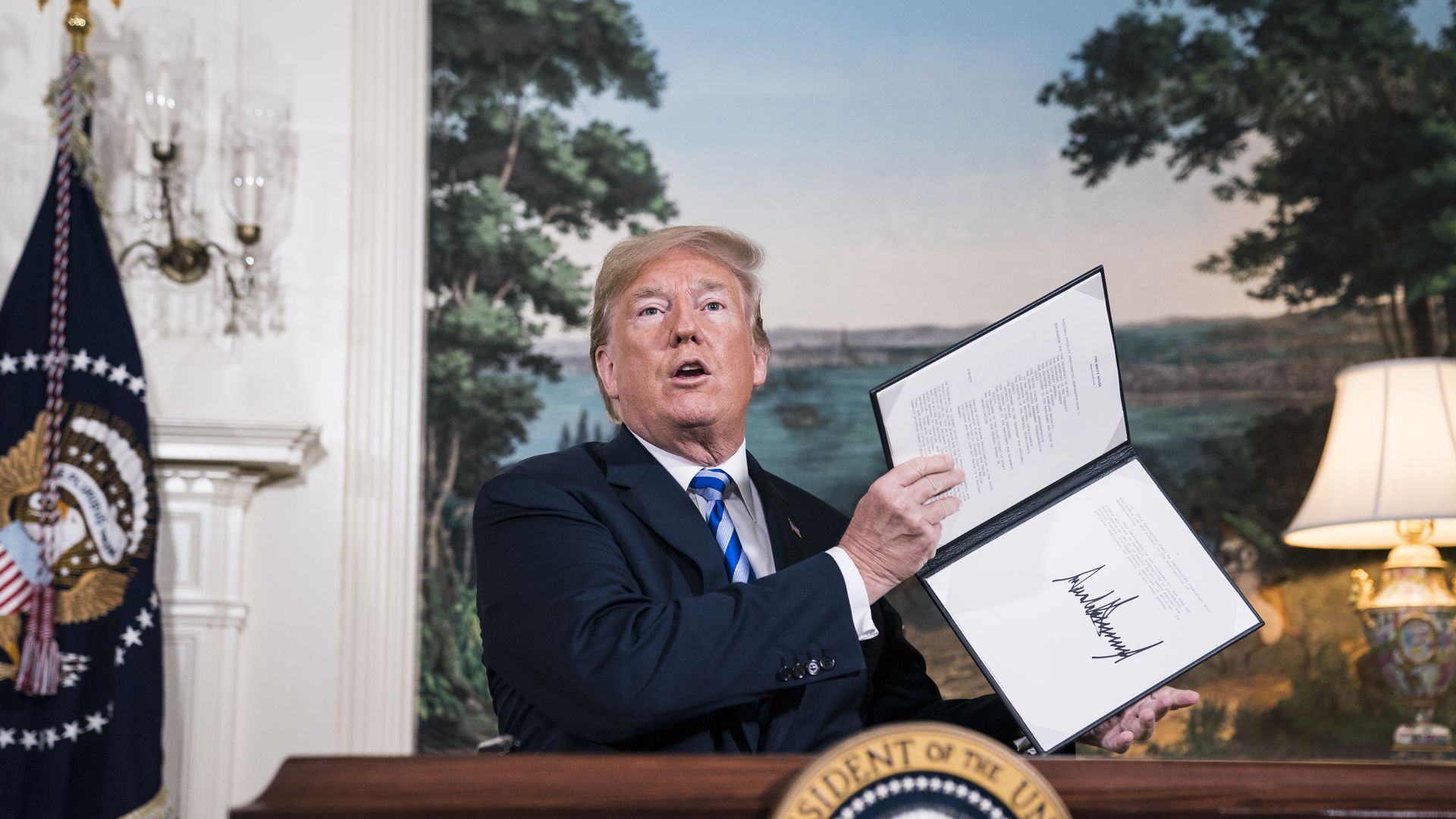Jul 5, 2018 - Energy & Climate
Iran's OPEC Minister to Trump: "Please stop" tweeting
Add Axios as your preferred source to
see more of our stories on Google.

Trump holds up a Presidential Memorandum as he announces U.S. withdrawal from the Iran Nuclear Deal. Photo: The Washington Post via Getty
